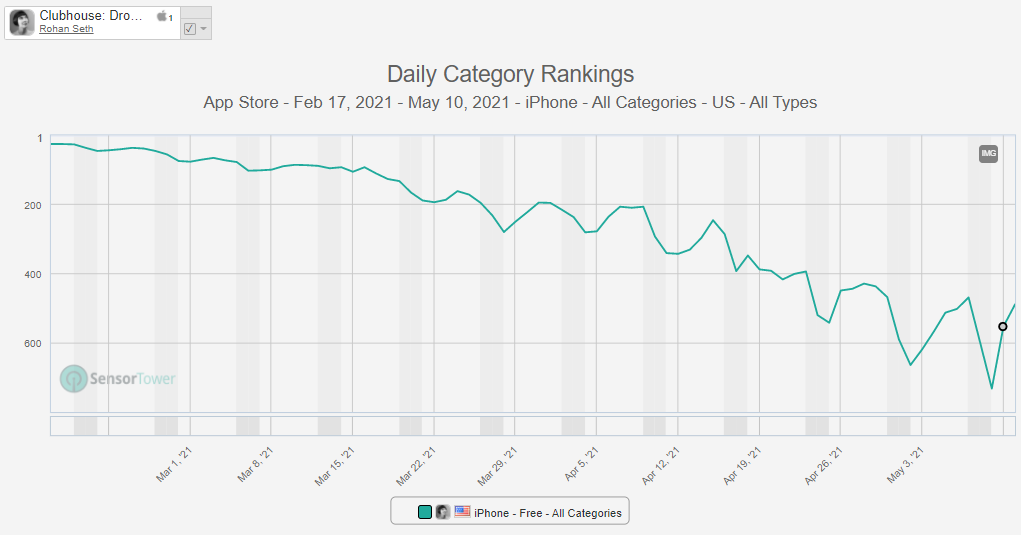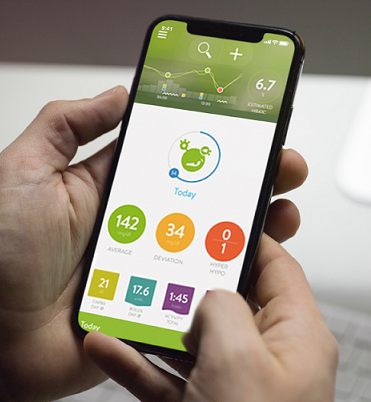It’s taken a while – and no doubt some frantic work at Clubhouse HQ – but an Android version of the audio social platform is now live, in limited beta, with a full release coming soon. The application can be downloaded from the Play store … but only in the US.
Clubhouse, launched in 2020, caught the attention when through it you could listen to the conversation between Tesla and SpaceX CEO Elon Musk with the head of Robinhood Markets Vladimir Tenev. The interest surrounding the event, which even got a YouTube broadcast, was huge and helped lift Clubhouse to start-up peaks. In February, the number of users of the application exceeded 2 million, and according to the latest valuation, it is already worth over $ 4 billion.
The clubhouse trend was mainly driven by celebrities such as MC Hammer, Kevin Hart, and Jared Leto. Their inclusion each time resulted in a marked increase in engagement, but – as the app has so far only been available to iPhone users – the challenge it has faced is maintaining growth while maintaining the quality of the content offered. And that’s not easy, as evidenced by the fate of all other social media platforms in the world.
Work on the Android application was started by Clubhouse at the beginning of this year. This month, they began externally testing the beta version.
Clubhouse’s Android app has some severe limitations at launch.
These features are still to come:
- Topic following
- Localization and in-app translations
- Club creation or club management
- Twitter account or Instagram account linking
- Update name or update username in-app
- Sidebar
- Payments (currently U.S. only for iOS)
- You can report someone from their profile but reporting via the recent speaker choice will be coming soon
They currently support Android devices using Android OS versions 8.0 and above.
But it’s finally here, after a lengthy wait, and it’s a crucial milestone of the app’s development.
Table of Contents
Clubhouse vs other popular apps
Twitter, Facebook, Discord, Spotify, LinkedIn, and Instagram are all offering Clubhouse-like audio social options. Twitter has already taken the lead in this race: its Spaces, available on Android without invitation, attracted hundreds of listeners in just a few minutes. Clubhouse’s lack of an Android app has been a key growth hurdle in recent months, potentially reducing the potential Android user take-up. If you can listen to as many audio social rooms as you like in apps that you’re already familiar with – and that are currently available on your device – then are you actually in need of Clubhouse?
While Clubhouse may have started the audio social trend, these newer products are refining it in various ways, posing a huge challenge for Clubhouse as it attempts to capitalize on its early momentum and maximize its audience development.
The Android version is for Clubhouse to be or not to be
Clubhouse for Android shall make it popular and useful. Statistics tell us that Android has the highest number of users in the world. While iOS might lead in some countries, it’s not that popular in the entire world. Android is HUGE and you can’t afford to ignore such a market.
The data on downloads for this app, although they differ in detail depending on the source, clearly shows the trend: the popularity of the Clubhouse app is declining.
You can check the downward trend in the app’s daily download rankings:

While Clubhouse continues to experience tiny increases in download numbers, the declining trend is obvious here. This can be due to a number of factors, including the lack of an Android app (though these are solely iOS numbers), increased competition in the audio social arena (as previously mentioned), and Clubhouse’s invite-only approach, which is intended to increase the FOMO factor and increase interest in the app while simultaneously reducing burden on Clubhouse’s servers.
Software Architecture challenges
This is a challenge that its competitors don’t have because most have already established the infrastructure to host multi-participant video streams, meaning that, if anything, lowering their video tools to audio-only is a step back from a data load perspective, while Clubhouse is working to keep up.
This increases the pressure on the Clubhouse team to invest extensively in infrastructure to accelerate growth, which it can still do, but as Clubhouse itself notes, its sudden growth has put its systems under serious strain.
And if Clubhouse can’t open up more widely, and maximize its recommendation algorithms, it’s at huge risk of being surpassed by larger platforms, which are already starting from a stronger position, with broader reach, better, more personalized algorithms, and upgraded audio features. And those tools are being updated and modified every single day.

You might also be interested in the articles regarding:
Software Architecture
Can Clubhouse keep up with the bigger players, even with the release of its Android app?
Android version is crucial, but the answer is most likely two things: creator incentives and algorithm refinement.
Of course, Clubhouse could accelerate development by allowing users to join the service without being invited. This, however, is not an option at the moment. The startup claims that the invitation system is part of its efforts to „maintain measured growth”.
What’s interesting, they began rolling out Payments—their first monetization feature for creators on Clubhouse. All users will be able to send payments, and there will be the ability to receive payments in waves, starting with a small test group. Clubhouse’s hope is to collect feedback, fine-tune the feature, and roll it out to everyone later. This will be the first of many features that allow creators to get paid directly on Clubhouse.
However, those new Android users will probably face the same difficulty in generating and discovering intriguing sessions.
The path ahead is not easy, and Clubhouse appears to be already stretched as it tries to keep up. It can still win out, with a dedicated audience, expanding reach, engaged creators, and a brilliant factor that the other, traditional social apps don’t have at this stage. But the difficulty, though, is enormous and growing.
In our opinion Clubhouse has seriously squandered any hype they had. Still invitation-only because they can’t expand properly, took a year to launch an Android app, and even now it’s a beta that’s region-locked.

Mobile Development
fireup.pro is proficient in creating mobile apps. Cooperating with us, you can release the MVP within a month. We’ll use the latest technology to make it shine. Create your own native mobile app for Android that will conquer the hearts of your users. With our experience, you can meet your business goals, and get to market faster!
Nonetheless, we would like to see what Clubhouse has up its sleeve in terms of improving discovery in order to entice Android consumers and maintain its phenomenal growth. Let the battle royale of live audio start!
